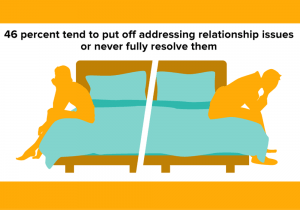
Hypoactive Sexual Desire Disorder (HSDD)
Sometimes you want sex, sometimes you don’t. That’s normal. Every woman has her own level of what is considered “normal” based on their own experiences and biology.

An important part of overall sexual health is healthy sexual functioning—being able to experience sexual pleasure and satisfaction when desired.
Sexual pleasure can be experienced in many ways, from solo masturbation to oral sex to sensual massage to a range of other possibilities. When we are sexually exited, our bodies respond in certain ways. A racing heart, rapid breathing, a rush of blood to the genitals. The vagina will become more lubricated and the clitoris will swell. Increased blood flow to the penis leads to an erection. This is all part of the sexual response cycle.
But what happens when something in this response cycle doesn’t work as expected? Maybe a woman has trouble getting aroused or finds her body producing less lubrication, making intercourse painful. A man might have trouble getting or maintaining an erection, or may have difficulty reaching orgasm.
Sexual problems like these are not uncommon, and can have either psychological or physical causes. These can include:
But when does the occasional problem become a more serious one? When sexual difficulties are more than occasional, when they are persistent and upsetting and interfere with a healthy sex life, it is time to talk to a health care professional.
The good news about sexual difficulties is that there are solutions. Sometimes, medication might be the answer. In other cases, therapy may be the right approach. What is important is to find the help you need to have a satisfying sex life.
When there are sexual difficulties in a relationship, both partners are affected. For example, erectile dysfunction (ED) isn’t just a problem for the person experiencing it—partners are affected as well. ED can cause a man to withdraw from sex and his partner. Partners may blame themselves, thinking that they are no longer desirable or suspecting infidelity as the cause behind the ED.
A lack of communication can be destructive for couples dealing with ED. Talking with a partner is an essential part of managing the condition.

Sometimes you want sex, sometimes you don’t. That’s normal. Every woman has her own level of what is considered “normal” based on their own experiences and biology.

Sex shouldn’t hurt…But sometimes it does. Between 10% and 20% of women in the U.S. experience persistent pain during sex—a condition referred to as dyspareunia.

For some women, reaching orgasm can be difficult. Fortunately, there are steps you can take to address the problem and have a more satisfying sex life.

When a woman becomes sexually aroused, her body will respond with physical and emotional changes. For some women, though, this arousal response doesn’t happen as expected. The desire may be there, but the body or the mind (or both) don’t respond.

Sociologist, sexologist and relationship expert Dr. Pepper Schwartz joins our Sex+Health podcast for a three-part discussion on the range of female sexual difficulties and offers practical advice and resources for women (and their partners).

If you struggle with incontinence and have concerns about leaking during sex, you’re not alone. The American Foundation for Urologic Disease reports that one in three women with stress incontinence avoids sex due to fears of leaking during intercourse or orgasm. But incontinence during sex doesn’t have to be an issue.

Why aren’t couples talking about sex? Despite increasing public acceptance of sex as an everyday topic and a trend towards more empowered health consumers, people continue to feel uncomfortable talking about sexual health issues—even behind closed doors.
ASHA believes that all people have the right to the information and services that will help them to have optimum sexual health. We envision a time when stigma is no longer associated with sexual health and our nation is united in its belief that sexuality is a normal, healthy, and positive aspect of human life.
ABOUT
GET INVOLVED
ASHA WEBSITES
GET HELP
© 2025 American Sexual Health Association